- Home
- Lisa Gardner
Never Tell Page 13
Never Tell Read online
Page 13
“The police would have forensic evidence,” I say at last. “From his rig. He had a special compartment. They could study it for DNA.”
“The police recovered multiple strands of hair and fibers, as well as additional DNA evidence from Jacob’s truck. Most of it, however, was connected to various prostitutes, including two that were murdered in Florida. Gutted after walking off with a beautiful young woman.”
I don’t say a word.
“With dark hair,” he adds.
I still say nothing.
“But there’s also evidence that the box where he held you in the truck was new. A recent insert, probably prepared especially for you. Meaning . . .”
“He could’ve had other inserts for previous girls.”
“In your statement, you talked about being held in a basement of some cabin in Georgia. Jacob told you he had to vacate it because the owner died, so he allowed you to join him in his truck.”
I shrug. I know this already.
“The police have never been able to locate the cabin. Which is stranger than you might think. While the mountains of Georgia are vast, the number of cabins whose owners died the year you were abducted isn’t that big. From there, it’s simply a matter of visiting the local community, floating pictures of Jacob and his vehicle, as well as checking Jacob’s financials for gas receipts—anything. The FBI should’ve found a connection between him and one of the towns or cabins easily enough. But they didn’t. Haven’t. Ever.”
I frown. Rub my right thumb along the water glass’s condensation. “You think I was wrong? I lied to the police?”
“Actually, I think Jacob lied. To you. He wanted to keep your initial location secret. Even from you. That way, if you did escape, you couldn’t give it away.”
“His lair,” I say the words softly. “That cabin. It was his monster’s lair, and he didn’t want to give it up.”
“I think if we could find it, we’d learn a lot more about Jacob Ness. Maybe even find a link to the other missing girls.”
“He’s dead. If he did own such a cabin, it would’ve gone on the auction block by now. Foreclosure, repossessed by the IRS, whatever.”
“I tried that. The property can’t be in Jacob’s name, or listed under any of his known associates because, again, the FBI would’ve found it already. So periodically, I run a list of all properties up for auction in northern Georgia, with a basement. Unfortunately, that list is longer than I’d like.”
“You’re serious about this.”
“Yes.”
“You’ve been working these other missing girls’ cases, for what, six years already?”
“Samantha Mathers, Elaine Waters, Lilah Abenito, Daphne Passero, Rachel Englert, Brenda Solomon.”
“Do the police assist you?”
A small pause. “Officially, no. But some of the group’s members . . . have connections.”
“With the FBI?”
“Not as good as yours,” he says bluntly.
“And this is why you wanted to talk to me?”
“Not necessarily. You’re a victim. We’re the hunters. We don’t expect—”
I hold up a hand. “Never call me a victim again. I’m a survivor. There’s a difference.”
He nods.
“I killed him,” I say shortly. The words are hot and fierce. I won’t take them back. “Does your group know that?”
“Yes.”
“Do you blame me? If I’d let him live, you’d have your answers. These missing girls, their families, they’d have closure.”
“Did you ever hear Jacob talk about other girls?”
“Specifically, no. But he was a sex addict, wife beater, and serial rapist. I already knew I wasn’t his first. But I assumed that I was the first he’d taken such great lengths to keep.”
“Why?”
“Fuck you.”
Keith falls silent again.
I can’t take it. I’m too agitated. I smack the glass of water on the coffee table. I like the sharp sounds it makes, as brittle as I feel. Water rings. I can already see them forming, and watch as Keith glances helplessly at the growing mess on his precious, shiny table. It gives me a perverse pleasure. Then I’m up, moving, walking, wishing I could shed my own skin.
I don’t want to be me anymore. Not today. Not seven years ago. Never every single moment of the four hundred and seventy-two days Jacob kept me his prisoner. I hate to think of him. I loathe remembering what it was like to feel so helpless, so weak.
But I’m further disoriented to be here, in this place, with this man. Somewhere in the back of my mind, I get it. In this room, the two Floras collide.
The teenage girl I used to be. The beautiful blonde who could make any boy look twice. That Flora would’ve been impressed by Keith Edgar. His dark good looks, a swanky Boston town house. She would’ve been scintillated to hear of his murdered cousin, his heroic cause to catch other killers out there. She would’ve been thinking about kissing him.
Then there’s the woman I am. Who looks at a handsome, charming man and thinks instantly of Ted Bundy. Who is too skinny and too hard and too tired after seven years without a single good night’s sleep. Who doesn’t think about dating, or men, or kissing . . . anyone.
I don’t have romantic dreams or aspirations anymore. Some survivors do. They figure out how to compartmentalize, that was then, this is now. I can’t. I live in a state of lockdown. I spent so long separating my mind from my body in order to survive another day, I can’t get it back. My body is merely a tool. Jacob used it for sex. I use it for revenge. Neither of us respects the package.
And now I don’t want to be here. I don’t want to talk to Keith Edgar. I don’t want to think of other missing girls. Whom Jacob might have kidnapped and held in his big rig. Did he keep some longer than me? Did he enjoy their company more? Dear God, is it possible to be jealous of such a thing?
“Flora?” Keith asks quietly. He hasn’t moved.
“Did Jacob have a partner?” I say. “In your research, is there any evidence he knew other predators, maybe connected with them online?”
“I’m not sure.”
“What does that mean?”
“It means I’m not the FBI. I don’t have access to his laptop the way they do. Jacob was a loner. Yet, the amount he traveled, his ability to so completely cover his tracks . . . I wouldn’t be surprised if he had some friends, associates helping him out. Why are you here, Flora? Why are you asking these questions now?”
“You said you don’t have access to the FBI.”
“No.”
I finally look at him. “I do.”
He regards me evenly. “Why here, why now?” he repeats. “What happened?”
“I need to know everything about Jacob Ness before I met him. Help me answer those questions, and eventually, I’ll answer yours.”
He doesn’t even blink. “When do you want to start?”
“Right now. Get your computer. We’re going to make a call.”
CHAPTER 13
EVIE
WHAT IS THE PERFECT MARRIAGE? When I first met Conrad, I felt like acceptance was the key. I was at a fellow teacher’s cookout. A rare public venture, since even back then my past followed me everywhere. But it was May, a beautiful sunny day after another long Boston winter, and I wanted one afternoon of feeling like everyone else. So I showed up, a young teacher, hanging out, eating slightly charred chicken in a colleague’s backyard.
I heard his laugh. That’s what caught my attention first. Booming. Natural. Unencumbered. In my family, my parents’ house . . . I don’t remember ever hearing anyone laugh like that.
Conrad was standing in the corner near the fence, sweaty beer in hand, ketchup stain on a blue Hawaiian shirt. He was clearly holding court, regaling the gathering throng. So I drifted closer, still on the outskirts, but li
stening now.
Windows. He was telling stories of windows. Of five-by-three windows that arrived being fifteen inches by thirteen inches, and custom creams that showed up pine green, which he was then informed was merely a darker shade of cream, and even better the order he placed for a fancy home in Barrington, Rhode Island, that the factory claimed it couldn’t deliver because Rhode Island wasn’t a state—surely he meant Long Island instead.
More laughter. More swigs of beers. More stories from the road.
I don’t know how long I stood off to the side before he noticed me. He glanced over once or twice, taking in the crowd, but surely not zeroing in on a slim woman with dirty-blond hair, still nursing her first beer, which was more of a placeholder than a beverage.
Then, suddenly, he stood before me. The crowd had disappeared and the man himself had appeared. Up close, he was compact, muscularly built, with light brown hair and deep blue eyes. His features were tan, and when he smiled his teeth were a flash of white against his sun-darkened skin.
He looked . . . strong and capable and funny and honest and like all my hopes and dreams rolled up into one package.
Then he shook my hand. Reached over and simply took it, and the feel of his calloused fingers against my skin . . .
I wanted him right then. In a way I’d already taught myself never to want anything. I didn’t move. I didn’t smile hello. I didn’t offer my name. But it didn’t matter. He did the talking for both of us. He did the laughing for both of us. Later, he asked for a walk around the block, just so we could get to know each other, and he asked me so many questions, that I found myself answering.
None of my answers fazed him. Not my job as a math teacher (great, a woman with brains!), not my legendary father (that must be interesting, I don’t have any family left), and not what had happened one day when I was sixteen, that still left me gutted and reeling and untethered to real life (I’m so sorry, I lost both my parents several years ago; you never get over the loss).
By the time we hit the end of the street and were headed back, I was hooked. I wanted the boom of his laugh, the brightness of his company, the way he looked at me, truly looked at me. As if nothing I could do or say would shock him. Or make him not want me.
That’s who I fell in love with in the beginning. A guy who seemed to accept me, unconditionally.
It wasn’t until later that I realized that Conrad was also the kind of guy who seemed to get everyone. Strangers gravitated toward him in a crowded bar. Neighbors lingered just to talk to him.
It was his superpower, what made him so good at his job, traveling to job sites, speccing out high-end windows, soothing irate customers.
Everyone loved Conrad. Everyone felt heard and understood and acknowledged by him.
Yet how well did any of us know him? A guy who logged so many hours on the road with little or no accountability? A guy with no family to visit and tell stories about his younger years?
A guy who did all the talking but never really told you anything about himself.
Then there was the locked door.
Innocent enough. I ran out of packing tape in the kitchen. Walked up to Conrad’s office, thinking he’d have a fresh roll. He was traveling, his office door shut. No biggie, I thought. I went to turn the knob only to discover that I couldn’t.
Confusion. A locked door in my own house? Followed shortly by disbelief. Why would Conrad even bother? There was only me hanging around and it’s not like a custom window business involved state secrets. Followed shortly by . . . curiosity.
A locked door is a puzzle. And no self-respecting mathematician can walk away from a puzzle.
It became a game for me. Every time the door was closed, to wander by, test it. Conrad watching TV downstairs at night. Door unlocked. Gone for an afternoon meeting. Locked. Business trips, definitely locked. Two A.M. when I got up just because I had to know, locked again.
I never said a word, of course. That would imply that I didn’t trust him—wouldn’t it?
Anyway, I grew up with a mom who regularly manipulated reality to best suit her needs. I didn’t want to be told an answer. I wanted to learn it for myself.
So I did what any dysfunctional adult who is accustomed to chronic lies would do: I waited till my husband’s next business trip; then I picked the lock to his private office.
My hand shook when I first cracked open the door. My heart was pounding. I felt like Bluebeard’s wife, stepping into the very room she’d been warned about. The next thing I would see would be the hanging corpses of past wives.
I discovered file cabinets. Stacks of window catalogues. A printer/scanner. And a cleared spot on the desk where Conrad’s laptop usually lived. I went through the files. Once you’ve committed B and E you can’t just walk away. I found project files, various blueprints for homes up and down the East Coast. I found vendor files, handwritten notes on upcoming product changes, and new and improved color options.
In the end, I got on my hands and knees. I searched for documents taped under the desk, files slipped behind the cabinets, maybe even a computer code stamped to the bottom of the executive leather chair. I felt crazed. A woman having an out-of-body experience. It struck me that this was exactly what my mother would do. My poor husband was simply in the habit of locking up, and here I was, turning it into sordid drama.
Why couldn’t I simply trust him? Or was it me I didn’t trust? Did I figure that anyone who loved me the way he loved me had to have something wrong with him?
I crawled around the office on my hands and knees. I went through every single scrap of paper. If Conrad hadn’t been out of town, if he’d returned home early, there’s no way I would’ve been able to justify my behavior, the total gutting of his neat and almost hyperorganized professional space.
Except I’m a mathematician, raised by one of the world’s best intellects. And part of brilliance isn’t just solving a problem; it’s seeing a problem no one else realizes is a problem yet.
A locked room, in the privacy of a man’s own home, containing only files and not even a computer . . . Why? Why lock it at all?
A puzzle. I needed the solution.
Then I saw the lone piece of semivaluable equipment. The printer/scanner. With a memory cache.
I fell in love with Conrad for his loud laugh, his smile, his personality. And, no, I didn’t find any bodies of murdered wives that day. But in the end, I did find a bread crumb. An image of a scanned document, a record of a bank account that I never knew existed.
Not a crime. Not even anything I could mention without having to reveal how I discovered it. But a piece of a puzzle.
Which, of course, I churned and worried and worked. Until I waited for him to go on trips, just so I could once more rip apart his space. Except then he started regarding me through narrowed eyes upon his return, probably because I didn’t put everything back perfectly, so he knew something was off even if he didn’t quite know what.
I started taking pictures. Of exactly how the office looked upon entry, so I could carefully replace each item. Then, when he still seemed unsettled, I started checking the doorway for tricks I read about online—a piece of hair positioned across the doorway, which would be broken upon entry. Easy enough to replace with one of my own upon exiting. Or lint positioned just so on top of a slightly skewed open drawer. Which I photographed and returned to its exact location.
A duel of sorts. Months, years. A period of strain followed by a period of shame when I swore to myself I’d stop this madness. Conrad was a good guy. Conrad loved me. If he had financials that were his own, frankly, so did I. That made us independent adults, not government spies or nefarious criminals.
But eventually I would break again. And back into the office I would go, tearing apart my marriage in search of answers to a question I couldn’t even ask.
What is the perfect marriage? Acceptance, I had thou
ght. But I’d assumed it would be my husband’s acceptance of me. I’d never stopped to consider that maybe I’d prove incapable of accepting him. That maybe my mother, via the lie that had become my adult life, had warped me even more than I’d understood.
You can’t sneak around in a marriage forever. Sooner or later, no matter how careful you are, you’re going to get caught. Yet I couldn’t stop. It’s almost as if I wanted Conrad to figure out what I was doing. I needed our marriage to fall apart.
Except, suddenly, two made three.
Then my mistakes truly came back to haunt me.
* * *
—
I DON’T KNOW what to do. I can’t go outside. Even this late at night, the media vans remain a solid wall of high-powered lights parked just across the street. I’m too keyed up for sleep, my brain jumping between images of Conrad’s blood-spattered body and our home’s burnt-out shell. I should rest for the baby’s sake. I should flee my mother’s house for my sake. I should do . . . something.
But I don’t know what. Sixteen years ago, confronted by a similar tragedy, I’d simply done what I was told and taken the blame. Now?
I hate the lingering sense of déjà vu. And worse, the feeling of once more being helpless.
I hadn’t lied to the detective. I still don’t know what happened to my father. One moment, I had a dad, my hero, my rock, the man I could always count on. Then he was dead. Just like that.
My mom’s response upon entering the kitchen . . . it wasn’t horror; it was outrage mixed with hysteria. That he’d gone and died? Or that he’d gone and killed himself, which is what I’ve always wondered. At sixteen, shell-shocked and traumatized, I’d never thought to question my mom. If she said we needed to keep what happened between us, then we needed to keep it between us. Denial was what my mother did best.

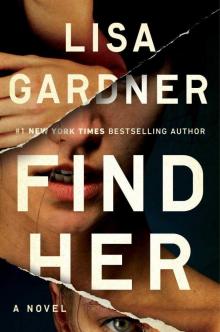 Find Her
Find Her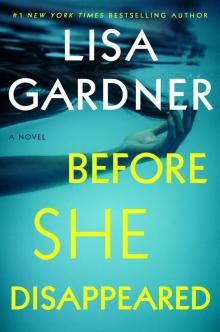 Before She Disappeared
Before She Disappeared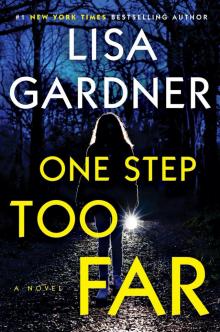 One Step Too Far
One Step Too Far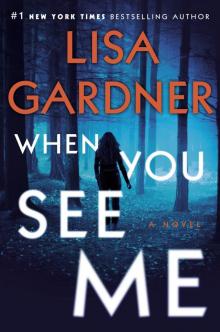 When You See Me
When You See Me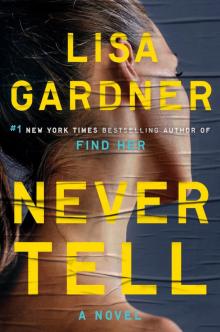 Never Tell
Never Tell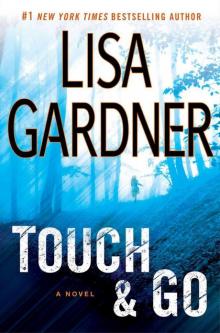 Touch & Go
Touch & Go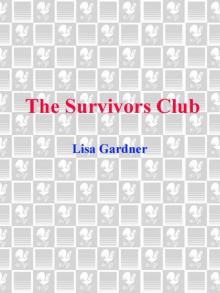 The Survivors Club
The Survivors Club MacNamara's Woman
MacNamara's Woman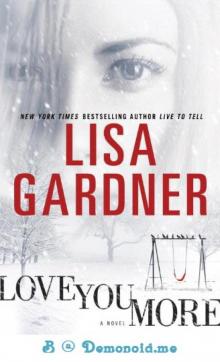 Love You More: A Novel
Love You More: A Novel Gone
Gone The Perfect Husband
The Perfect Husband Maggie's Man: A Family Secrets
Maggie's Man: A Family Secrets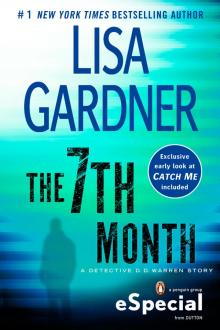 The 7th Month
The 7th Month The Neighbor
The Neighbor Hide
Hide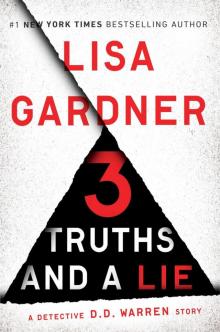 3 Truths and a Lie
3 Truths and a Lie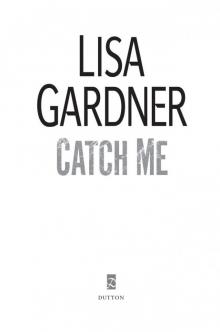 Catch Me
Catch Me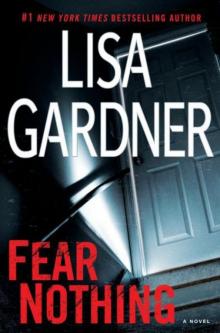 Fear Nothing: A Detective
Fear Nothing: A Detective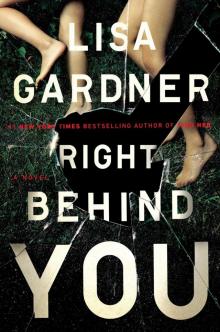 Right Behind You
Right Behind You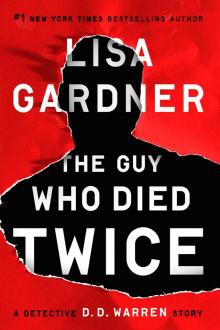 The Guy Who Died Twice
The Guy Who Died Twice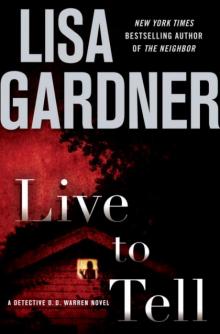 Live to Tell: A Detective D.D. Warren Novel
Live to Tell: A Detective D.D. Warren Novel Live to Tell
Live to Tell Maggie's Man: A Family Secrets Novel
Maggie's Man: A Family Secrets Novel The Other Daughter
The Other Daughter Alone
Alone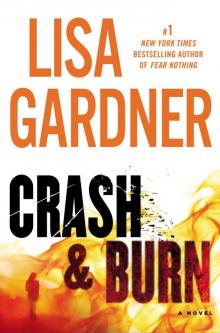 Crash & Burn
Crash & Burn The Detective D. D. Warren Series 5-Book Bundle
The Detective D. D. Warren Series 5-Book Bundle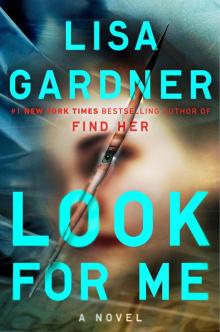 Look for Me
Look for Me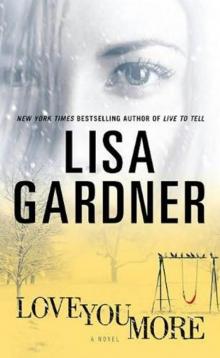 Love You More
Love You More The FBI Profiler Series 6-Book Bundle
The FBI Profiler Series 6-Book Bundle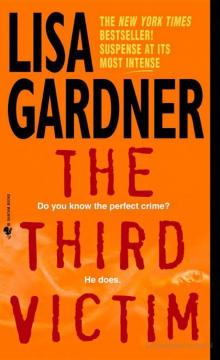 The Third Victim (Quincy / Rainie)
The Third Victim (Quincy / Rainie) Say Goodbye
Say Goodbye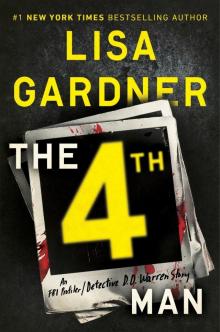 The 4th Man
The 4th Man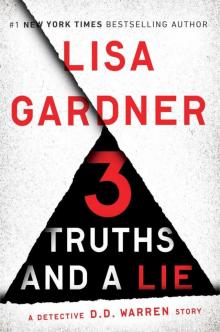 3 Truths and a Lie: A Detective D. D. Warren Story (Kindle Single)
3 Truths and a Lie: A Detective D. D. Warren Story (Kindle Single) Brandon's Bride
Brandon's Bride